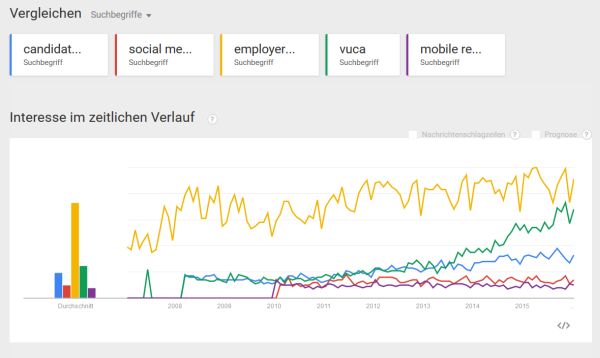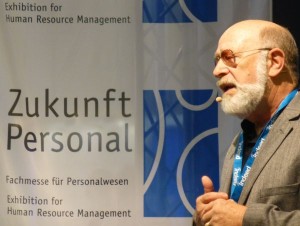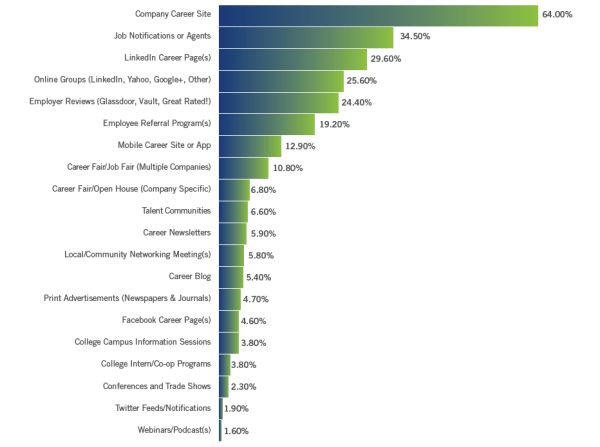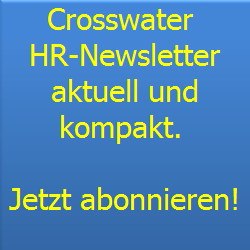Candidate Experience – noch nicht zu Ende gedacht?

Von Gerhard Kenk, Crosswater Job Guide
Das Thema „Candidate Experience“ ist für HR-Blogger und andere Medien so etwas wie eine Rückversicherung. Es sichert Aufmerksamkeit, Dialoge in den sozialen Medien, Spotlights bei Vorträgen – und kann ständig wiederholt werden wie wir es einst schon bei Leporello in Mozarts Oper Don Giovanni gehört haben. Nun fasst Gery Crispin und sein Team von TalentBoard, einer internationalen Non-Profit-Organisation der HR-Branche, den Status Quo der Candidate Experience in Nord-Amerika zusammen. Können diese Erkentnisse auch auf den Recruiting-Markt in Deutschland übertragen werden?
Die Analyse von Google Trends zeigt allerdings, daß im Hype-Circus der Begriff „Candidate Experience“ durchaus einen schweren Stand hat. Das „Employer Branding“ dominiert die Google-Suche, gefolgt von „VUCA“.
Vuca? Da war doch was! Hinter dem Acronym VUCA verbergen sich die Schlagworte Volatility, Uncertainty, Complexity, Ambiguity. Wikipedia fasst das schön griffig zusammen:
The deeper meaning of each element of VUCA serves to enhance the strategic significance of VUCA foresight and insight as well as the behaviour of groups and individuals in organizations. It discusses systemic failures and behavioural failures, which are characteristic of organisational failure.
- V = Volatility. The nature and dynamics of change, and the nature and speed of change forces and change catalysts.
- U = Uncertainty. The lack of predictability, the prospects for surprise, and the sense of awareness and understanding of issues and events.
- C = Complexity. The multiplex of forces, the confounding of issues and the chaos and confusion that surround an organization.
- A = Ambiguity. The haziness of reality, the potential for misreads, and the mixed meanings of conditions; cause-and-effect confusion.

Noch spannender verspricht sich die Lektüre des neuen Buchs von Melanie Vogel, der Powerfrau mit der neuen Lockenfrisur. Sie stellt diese Begrifflichkeit in den Mittelpunkt ihres Buchs „Futability – Veränderungen und Transformationen bewältigen und gestalten“. Schade eigentlich, daß das Buch erst in drei Tagen verfügbar ist, aber der Buchhändler Ihres Vertrauens kümmert sich bestimmt gerne um eine Bestellung.
Wo waren wir nochmal stehen geblieben? Ach ja, der Hype-Zirkus bei Google Trends. „Employer Branding“ liegt wie schon gesagt an der Spitze des semantischen Quintetts, gefolgt von „VUCA“. Candidate Experience liegt auf einem mittleren Platz, noch vor „Social Media Recruiting“ und „Mobile Recruiting“.

Inhaltlich geht es nun weiter mit dem Status Quo der Candidate Experience in Nord-Amerika. Gerry Crispin, der Doyen der Candidate Experience und viel beachteter Gastredner auf der letztjährigen Messe „Zukunft Personal 2015“ in Köln, hat mit seinem Autoren-Team ganze Arbeit geleistet.

Das aktuelle White Paper „2015 TALENT BOARD NORTH AMERICAN CANDIDATE EXPERIENCE RESEARCH REPORT“, das hier zum Download zur Verfügung steht, analysiert die Candidate Experience sehr detailliert aus der Sicht der Arbeitgeber, etwas weniger detailliert wird über die Candidate Experience aus Bewerber-Sicht berichtet.

Was für Kandidaten auf Jobsuche besonders wichtig erscheint ist mit großem Abstand die Unternehmenskarriereseite. Das ist im Recruiting in Deutschland auch kein Geheimnis, hat doch Professor Dr. Wolfgang Jäger mit wissenschaftlicher Akribie und klarer Analyse mehrfach darauf hingewiesen. An zweiter Stelle, und das dürfte eine Überraschung sein, steht der Job Agent, also die automatisch per Mail verschickten Hinweise, sobald eine neue Karrierechance sich ergibt. Diese News-Alert-Funktion ist aus dem Service-Angebot der Jobbörsen nicht mehr wegzudenken, anders sieht es hingegen bei den Arbeitgebern aus.
Zusammenfassend kommen die Autoren des Candidate-Experience-White-Papers zu spannenden Erkenntnissen. Madeline Laurano, Co-founder at Aptitude Research Partners und Kevin W. Grossman, VP NAM Program at Talent Board haben die wichtigsten Empfehlungen so zusammengefasst.
1. Most Employers Are Not Making a First Impression with Candidates. Over 50 percent of candidates have some past relationship with an employer. Companies should be thinking about ways to re-engage with talent and to brand themselves in an authentic way.
2. Candidates Are Becoming More Sophisticated. Candidates are taking control of their own journey. In fact, 76 percent of candidates conduct their own job search research across multiple channels prior to applying.
3. Job Boards are Not Dead. Even though candidates are relying less on job boards, organizations have increased their investment in this sourcing tool from 37 percent in 2014 to 45 percent in 2015.
4. Mobile Apply is Still Lagging. Although many technology providers have improved or enhanced their mobile capabilities, companies that offer mobile apply only get 8-10 percent of candidates applying for a job through a mobile device, whether they were offered the option or not.
5. Communication with Candidates is Very Weak. Although most companies send an immediate “thank you”, nearly half of candidates never received an indication of the status of the application, or information about why gender, race and ethnicity questions were asked or the option to save their application for a later date.
6. Employers Do Not Offer Enough Opportunities for Candidates to Showcase Skills, Knowledge and Experience. While over 80 percent of candidates answer general screening questions during the application process, only 50 percent are asked for job specific skills and less than one-third are asked to take assessments.
7. Employers Are Letting More Candidates through the Funnel. Eighty-eight (88) percent of employers are allowing more applicants to complete the application even after they fail screening questions, most likely due to sourcing ahead of need.
8. Employers are Making Interviewing More Efficient: Employers are conducting less interviews per candidate as 79 percent of companies now have 1-2 interviews related to a position- an increase from 63 percent in 2014.
9. Employers are Automating the Onboarding Stages: Employers are leveraging onboarding solutions particularly for forms management. Over 60 percent of companies are leveraging online forms.
10. Onboarding is Still a Missed Opportunity for the Candidate Experience: Once a candidate is onboard, organizations have an opportunity to find out what went right and what went wrong. Yet, only 16 percent of employers ask for feedback during the onboarding phase.
Neben den üblichen HR-Technologie-Aspekten zieht sich der Mangel an guter Arbeitgeber-Kommunikation wie ein roter Faden durch diese Erfahrungen. Der erste Eindruck zählt, Kandidaten-Kommunikation ist schwach, Bewerber können ihre fachgebiet-spezifischen Fähigkeiten nicht ausreichend im Interview darstellen, der erste Arbeitstag ist oft die bittere Konfrontation mit der Unternehmensrealität. Muss das denn ewig so bleiben?





